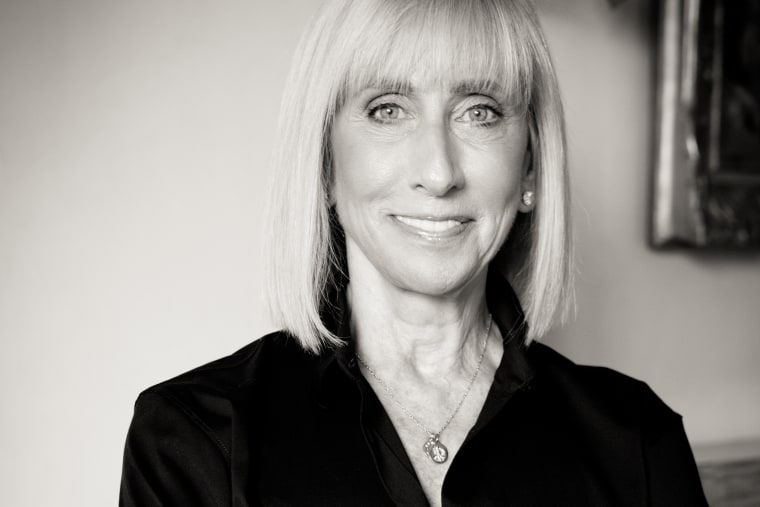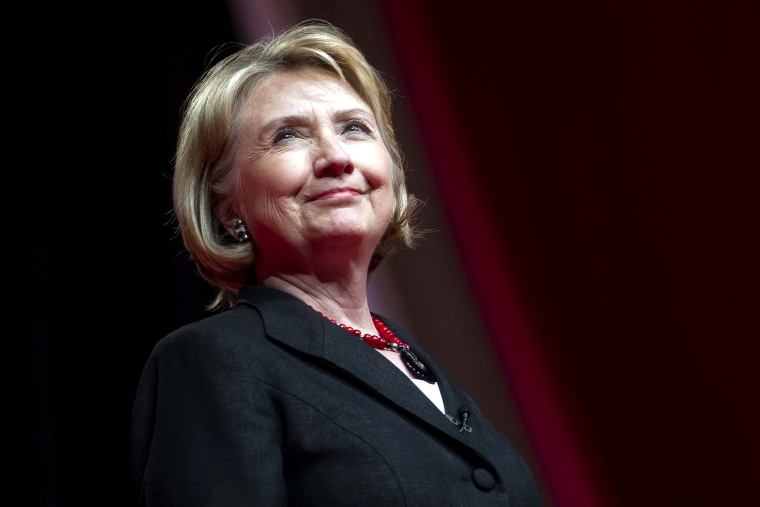
Jill Iscol is quick to point out her own flaws. Which is good, because after a few encounters with the ebullient political activist and philanthropist, it’s still hard to find them.
“I’m not necessarily somebody who thinks before jumping into something about the ‘how,’” Iscol says.
But it’s exactly that –the "how”—that she might be spending the next few years wrestling with: how to ensure that this time, Hillary Clinton wins the White House.
As the finance committee vice-chair for Clinton’s 2008 presidential bid, and a co-chair of the same committee for Clinton’s run for the Senate eight years earlier (plus the 2006 re-election effort), Iscol might be more ready for Hillary than anyone. Iscol now serves as co-chair of the “Ready for Hillary” national finance council. Her cross-country fundraising efforts last cycle brought in a million dollars at least.
Hillary “brings her wisdom, her experience, her practical skills, her skills at building consensus and reaching out to the opposition,” says Iscol, explaining her enthusiasm. “She brings worldwide respect and admiration. And a track record that nobody else in the country has, whether it’s dealing with nitty-gritty local issues or obviously global issues.”
For Iscol, what started as a campaign to elect Clinton to the nation’s highest office is now a movement to embolden other women.
“New York’s been really lucky to have women who are standing up and are articulating positions with courage,” she says, citing New York Senator Kirsten Gillibrand’s face-off with the military brass over the prevalence of sexual assault in the armed forces.
“She didn’t back down from any of those guys,” Iscol says. “To me, that was representative of a new wave of courageous women who are following the footsteps of Hillary.”
“I am supporting Kirsten Gillibrand, Nita Lowey, Kamala Harris, Eric Schneiderman, [and] I would support, I haven’t been asked yet, Wendy Davis.”
Iscol's interest in identifying the next generation of leaders culminated in the book "Hearts on Fire: Stories of Today’s Visionaries Igniting Idealism into Action," first commissioned as a Clinton Global Initiative commitment (“They kind of blessed it,” Iscol says), self-published in 2011, then bought by Random House a year later.
Iscol highlights the work of Jacob Lief, who built an education center “as nice as the nicest private school in Manhattan” for orphaned and HIV-positive children in South Africa; Vivian Nixon, who while serving time in jail, found her passion teaching other inmates how to read; and Andeisha Farid, who grew up in Iranian and Pakistani refugee camps, and now educates orphans in her home country, Afghanistan.
“There was something about a calling, like a spiritual component,” Iscol says. “There was a humility to almost everyone.”
The same could be said of Iscol, who, despite her wealth and social prominence is as approachable as a first grade teacher—which she once was. She was widowed at 24, and endured the anxiety of sending her oldest child Zach to Iraq as a Marine. He was stationed in Fallujah at the height of U.S. engagement there.
Iscol says she chose people for her book who had “moments in their lives where--no matter whether they came from a disadvantaged background, and many of them did, or a privileged background, or any place in the middle--they had a moment where they were transformed, nine out of 10 times by noticing the plight of those less fortunate than they.”
“They felt privileged, no matter what they had.”
As a child growing up in a middle-class neighborhood on Long Island, Iscol realizing at five years old what it meant to be privileged, she says.
A child her own age came to visit from a nearby orphanage.
“I had a mother and a father and I had a house, but the notion that somebody didn’t? A child?,” she asks, with the same incredulity she felt six decades ago.
“[My parents] didn’t use the term ‘birth lottery’ then, but that’s the message that came across loud and clear,” Iscol says. “I was aware from the time I was tiny that we were blessed.”
“Both of them felt lucky,” Iscol recalls of her parents, who built successful careers and raised their kids during the height of the baby boom. “But that was the ‘50s, the time of upward mobility for so many. It’s stagnant now. Social mobility is stagnant in this country and unless we fix that, we’re in big trouble.”
“We have to close this inequality gap,” she continues. “And if it doesn’t happen under this president, and he’s got a lot on his plate, it must be the charge of our government at every single level, sooner rather than later.”
“We as Americans were part of an aspirational culture and society, which can no longer exist if we remain in the state that we are in.... Jobs and closing the inequality gap are the big issues for 2016,” Iscol predicts.
One might guess she knows just the woman for the job.
